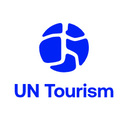Europe United As Tourism Leaders Meet In Athens



The European members of the World Tourism Organization (UNWTO) have met in Athens to advance the safe and sustainable restart of tourism across the region. The 66th meeting of the Commission for Europe counted on an unprecedented level of member representation. It also enjoyed political support of the highest level, with the participation of Greek Prime Minister Kriakos Mitsotakis, and Vice President of the European Commission Margaritis Schinas.
The Commission met against the backdrop of the latest UNWTO data and perspectives on international tourism, and in the context of continued calls for coordination to #RestartTourism to support not only the sector but also wider economic and social recovery.
“Europe has the chance to lead the global restart of tourism, safely and responsibly”, said UNWTO Secretary-General Zurab Pololikashvili. “The political support we are witnessing today is proof of tourism’s relevance beyond our own sector, building trust and getting societies and economies moving again,” he added.
Resources and technical support
This was echoed by Prime Minister Kriakos Mitsotakis, who commended UNWTO’s leadership and reaffirmed his country’s commitment to direct resources towards restarting sustainable tourism. The Commission focused on the practical steps UNWTO is taking to guide the restart of tourism and support the millions of jobs and businesses across Europe that are reliant on the sector. This includes the strengthened partnership between UNWTO and the European Bank of Reconstruction and Development. As outlined during the meeting, the two institutions will work together to deliver technical assistance designed to drive economic recovery in several European countries, including Greece, as well as Croatia, Montenegro, Georgia, Tukey and Turkmenistan.
Leadership and recognition
Tourism’s importance to the European way of life was further recognized by the Vice President of the European Commission. Margaritis Schinas has previously participated in UNWTO’s Global Tourism Crisis Committee, representing the European Commission as governments and both public and private sector leaders jointly work to address the impacts of the pandemic on tourism and plan the coordinated restart of the sector.
Hosting and chairing the Commission, Minister of Tourism of Greece, Harry Theoharis underscored the country’s firm political and practical support for UNWTO and for global tourism from the very start of the crisis. Greece, one of the world’s top tourism destinations, has been an active member of UNWTO’s Global Tourism Crisis Committee from the start of the pandemic. As Chair of its Technical Group, Minister Theoharis has guided public and private sector leaders in drawing up practical solutions to the biggest challenges facing tourism, including harmonized protocols for the safe restart of the sector, not only in Europe but worldwide.
Cruise and maritime tourism
Under the Minister’s leadership, the Greek Ministry of Tourism announced the establishment of the first centre dedicated to measuring sustainable development of coastal and maritime tourism in the Eastern Mediterranean, with the collaboration of UNWTO. The research and monitoring centre will be based at the University of the Aegean and will capture and analyse data relating to the environmental, economic, and social impact of tourism.
About UN Tourism
The World Tourism Organization (UN Tourism) is the United Nations agency responsible for the promotion of responsible, sustainable and universally accessible tourism.
As the leading international organization in the field of tourism, UN Tourism promotes tourism as a driver of economic growth, inclusive development and environmental sustainability and offers leadership and support to the sector in advancing knowledge and tourism policies worldwide.
Our Priorities
Mainstreaming tourism in the global agenda: Advocating the value of tourism as a driver of socio-economic growth and development, its inclusion as a priority in national and international policies and the need to create a level playing field for the sector to develop and prosper.
Promoting sustainable tourism development: Supporting sustainable tourism policies and practices: policies which make optimal use of environmental resources, respect the socio-cultural authenticity of host communities and provide socio-economic benefits for all.
Fostering knowledge, education and capacity building: Supporting countries to assess and address their needs in education and training, as well as providing networks for knowledge creation and exchange.
Improving tourism competitiveness: Improving UN Tourism Members' competitiveness through knowledge creation and exchange, human resources development and the promotion of excellence in areas such as policy planning, statistics and market trends, sustainable tourism development, marketing and promotion, product development and risk and crisis management.
Advancing tourism's contribution to poverty reduction and development: Maximizing the contribution of tourism to poverty reduction and achieving the SDGs by making tourism work as a tool for development and promoting the inclusion of tourism in the development agenda.
Building partnerships: Engaging with the private sector, regional and local tourism organizations, academia and research institutions, civil society and the UN system to build a more sustainable, responsible and competitive tourism sector.
Our Structure
Members: An intergovernmental organization, UN Tourism has 160 Member States, 6 Associate Members, 2 Observers and over 500 Affiliate Members.
Organs: The General Assembly is the supreme organ of the Organization. The Executive Council take all measures, in consultation with the Secretary-General, for the implementation of the decisions and recommendations of the General Assembly and reports to the Assembly.
Secretariat: UN Tourism headquarters are based in Madrid, Spain. The Secretariat is led by the Secretary-General and organized into departments covering issues such as sustainability, education, tourism trends and marketing, sustainable development, statistics and the Tourism Satellite Account (TSA), destination management, ethics and risk and crisis management. The Technical Cooperation and Silk Road Department carries out development projects in over 100 countries worldwide, while the Regional Departments for Africa, the Americas, Asia and the Pacific, Europe and the Middle East serve as the link between UN Tourism and its 160 Member States. The Affiliate Members Department represents UN Tourism's 500 plus Affiliate members.
UNWTO Communications Department
+34 91 567 8100
UN Tourism
